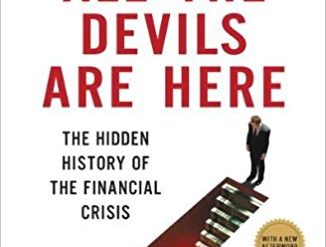
Estimated reading time: 4 minutes
Memoirs and autobiographies are often about score-settling. But that’s not the case with Uncanny Valley, Anna Wiener’s insightful and revealing account of her years working for three tech startups in Silicon Valley. You might expect to know at least the names of the companies where she worked, giving focus to her exposé of the sexism and sometimes cruel management practices she witnessed, but no. Not one of the companies is identified by name. This is a Silicon Valley memoir that is all about one woman’s experience with “the raw male id of the industry, a Greek chorus of the perpetually online.”
A Silicon Valley memoir without a score to settle
In fact, there are precious few proper nouns anywhere in Uncanny Valley. There are no brand names, and not a single company is identified by name. Oh, they’re easy to figure out:
- “The social network everyone hated” (Facebook)
- “An on-demand ride-sharing startup” (Uber)
- “A computer-animation studio famous for its high-end children’s entertainment” (Pixar)
- “The search-engine giant” (Google)
- “The home-sharing platform” (Airbnb)
- “A renowned private university in Palo Alto that was largely considered a feeder for the tech industry” (Stanford)
- “The highly litigious Seattle-based software conglomerate” (Microsoft)
Uncanny Valley by Anna Wiener (2020) 279 pages ★★★★☆
These are perfectly obvious to anyone with even passing familiarity with the tech industry, and no doubt Wiener meant it that way. But the device does help to create a sense of distance between us as readers and the companies. However, by contrast, I was able to figure out the name of only one of the three companies where she worked: Github (which Microsoft purchased in 2018 for $7.5 billion).
A Silicon Valley memoir that’s sometimes funny and always insightful
Wiener’s pithy observations about the tech industry are sometimes funny and always insightful. At “a monthly salon for the data curious” sponsored by one of her employers,” she witnessed “a fireside chat between two venture capitalists. . . It was like watching two ATMs in conversation.” And she describes one of the companies where she worked as “a company of twentysomethings run by twentysomethings. The CEO had never had a full-time job; he had only ever held a summer internship.” Wiener devotes considerable space to describing such experiences. But, naturally, she pays special attention to the under-appreciated role of women in the industry. For example, “The CEO and solutions manager agreed we needed more women on Support [where Wiener worked], but they didn’t hire any.”
“Immersion therapy for internalized misogyny”
The experience of working in such a testosterone-driven environment took a toll on her and the few other women at her company. “Being the only woman on a nontechnical team, providing customer support to software developers, was like immersion therapy for internalized misogyny. I liked men — I had a brother. I had a boyfriend. But men were everywhere: the customers, my teammates, my boss, his boss. I was always fixing things for them, tiptoeing around their vanities, cheering them up.”
On a personal note
I have rarely felt so old as when I read in Uncanny Valley. Of course, I have grandchildren older than the author, so I guess I shouldn’t be surprised. But the music, the food, the drugs, the clothing, and the personal habits Wiener describes in writing about her own life and that of her Silicon Valley colleagues strike me as utterly . . . well, alien. In the end, I found myself thinking of this memoir as an exercise in anthropology, exploring the little-understood culture of the tech world and of a new generation I can only dimly comprehend.
About the author
I found myself wondering how any Silicon Valley tech work could write so well. After all, aren’t they all supposed to be math geeks? Then I checked out Anna Wiener, only to discover that she’s a contributing writer at The New Yorker, which is sometimes considered to publish the best-written articles and stories in America. (So it seems to me, at least.) However, it’s clear from context that Wiener is no typical liberal arts grad miscast as a tech worker. She admits to an affinity for math and is a graduate of a math-and-science magnet high school in Manhattan. She is obviously ferociously bright: as she notes, she was hired by one company because they mysteriously asked her during her initial interview to take the LSAT, and she got a perfect score. A New York native, Wiener now lives in San Francisco and writes about startup culture and technology.
For related reading
I’ve reviewed other excellent books about Silicon Valley at 5 best books about Silicon Valley. See especially Burn Book: A Tech Love Story by Kara Swisher (Up close and personal with the billionaire boys of tech).
You might also be interested in Two dozen excellent memoirs and My 10 favorite books about business history.
And you can always find my most popular reviews, and the most recent ones, on the Home Page.


























